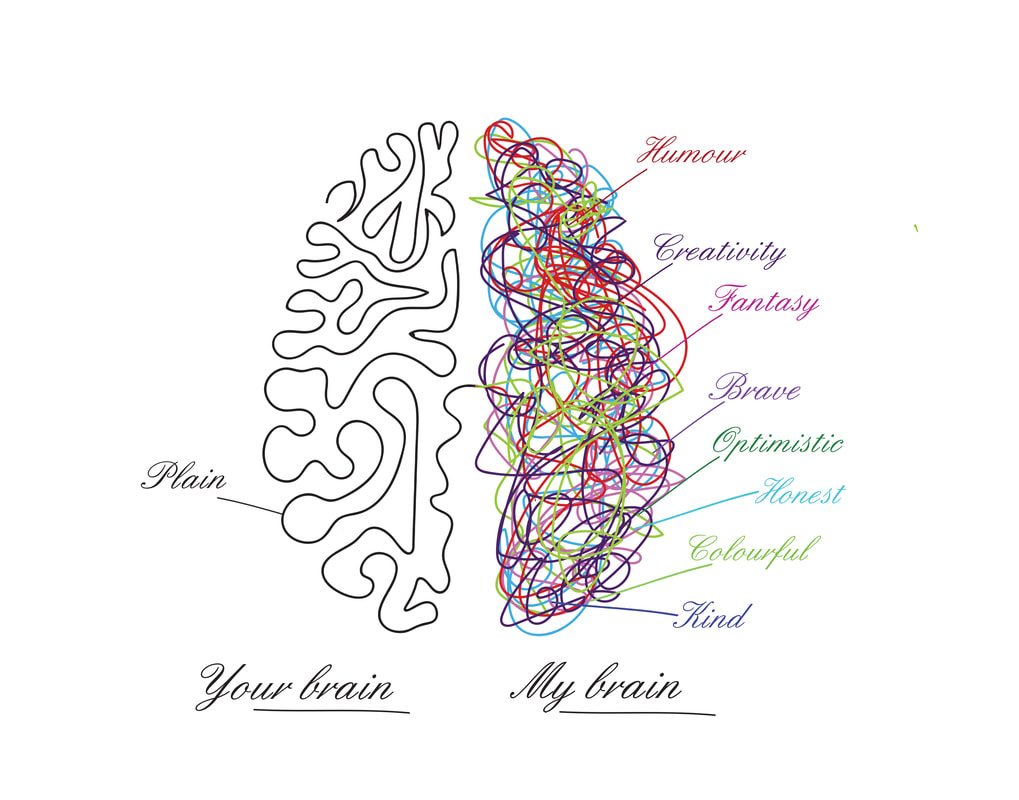As a communications professional and mother of an autistic child, I often am asked how to talk to a neurodiverse person. Let me assure you, I’m not an expert in this field. Just because I have a child on the spectrum and a degree in communications doesn’t make me an all-knowing spokesperson for neurodiverse people.
Honestly, I consider it disrespectful to speak as if I have any deep understanding of what it’s like to be neurodiverse in a world that’s less than accommodating to differences. What I can do is share what I’ve learned from 18 years of living with and loving an amazing autistic person. He’s promised to fact-check everything I write, so you can be assured it’s been reviewed by a knowledgeable source.
Joining me is Kelly Metzger, the mother of my son’s best friend (who also happens to be on the spectrum). In honor of Disability Pride Month, we’re getting candid with what we wish other people knew about communicating with our kids.
Say what you mean to say
“When you speak to someone who is neurologically different, say what you mean and mean what you say,” suggests Ms. Metzger. “You don’t need to offer funny puns or flowery metaphors. You don’t need hyperbolic language or dramatizations. Use relevant wording to convey what it is you want or need or is important to communicate in that moment.”
I concur with this tip 100 percent. Honestly, this is good advice when speaking with anyone, not just neurodiverse people. We’re all busy. Don’t waste someone’s time. As my journalism advisor always used to say, “Keep it simple.”

Don’t be sarcastic
Sarcasm can be funny to some people. Oh, the irony of a humorous dig. For others, sarcasm can be confusing, and it stings. “When someone can only grasp concrete language, trying to be comical at someone else’s expense just comes across as mean, particularly if the sarcasm is used in a group and the neurodivergent person doesn’t understand,” said Ms. Metzger. “Now they have become someone to laugh at in addition to the sarcastic remark.”
This is something I struggle with personally. Anyone who knows me knows that sarcasm is my love language. Thankfully, my son not only gets my sarcastic nature, but he also has learned to engage in the behavior himself. I know I can joke with him because I am confident that he understands my irony. When I’m talking to someone for the first time – especially if I know they’re neurodivergent – I keep my quips in check.
Practice some patience
I’ve gotten used to not being answered the first, second, and sometimes 53rd time I’ve asked a question in my house. Like Thomas the Tank Engine says, “patience is a virtue.” That’s certainly been true when communicating with my son. He may not respond as quickly as I’d like, but eventually, he processes my request and answers.
“Communication is a challenging skill,” said Ms. Metzger. “How many times have you gotten into an argument or disagreement because of a simple lack of effective communication?” She’s not wrong. According to the science guys, a lack of communication skills is a leading cause of arguments within relationships.
Since our brains all fire at different speeds, give people the time they need to respond to you. Likewise, if an answer flies out quickly that completely misses the mark, try again. Patience is key when communicating with anyone.

Allow for Q&A time
Repeating a question back to someone not only lets them know you’ve heard them. It also serves as a way to clarify a point before engaging. Using questions as a teaching tool is highly effective. Instead of jumping to the conclusion that the person is being rude by asking you to repeat yourself, understand that they may need additional clarification to process your request.
“This ensures there won’t be any confusion,” said Ms. Metzger. “This is useful in every form of communication because it leaves out room for grey areas and potential contention.”
Be willing to explain again
When communicating with a neurodivergent person, show them grace. That’s a good rule of thumb when talking to anyone. If the person doesn’t appear to understand, explain again. Find a different way to express yourself, because maybe you’re not being as clear as you think. Or, maybe it’s a topic you assume the other person knows as well as you, but they don’t. They may need some precursory information before they can engage in a meaningful discussion.
Sometimes people view this as the other person being disinterested in what they’re saying. Step back for a minute. Don’t assume the world revolves around you. If you truly want to communicate with the person, you’ll be willing to explain as many times as it takes for them to understand your point.
I must admit I struggle with this one myself. I have an autistic adult in my life who frequently responds to my conversation starters with, “Pardon?” Yes, it can be annoying. But getting past my ego and being willing to repeat myself until he’s heard me is worth the effort.

Put on your listening ears
Communication is a two-way street. Otherwise, it’s just a monologue. Remember when we suggested that sometimes neurodivergent people need a moment to process what you’ve said before they respond? Part of respecting their communication style means allowing them the time they need to express themselves (and putting your listening ears on when they do).
“When your brain is wired differently, you see the world from a different perspective,” said Ms. Metzger. “(Neurodivergent people) can offer valuable insight your neurotypical brain just hadn’t thought of. If you don’t understand what they’re trying to communicate, ask questions and seek clarification.”
Understand that behavior is communication
Oh, the stories I could tell of all the times well-meaning people approached me when my son was younger (and having sensory overload in public) with their helpful suggestions for curbing his behavior. I could probably write a novel. Talk to any parent of a neurodivergent child and they likely have similar stories.
What so many people don’t understand is that behavior is communication. Behavior is an essential communication tool for someone who is non-verbal. When my son was young and still struggling to speak, his behavior was his way of telling me when he was overstimulated or when he needed or wanted something. I understood it for what it was and would never have punished him for communicating with me the only way he knew how. To strangers, they just assumed my son needed a good spanking (and some didn’t mind telling me their opinions about it). It was exhausting educating ignorant people about my son’s communication preferences.
“It’s important to realize that behavior is a valid form of communication, just as body language is and words are,” said Samantha Supernaw, a licensed clinical social worker with Heart and Head Healing. “When working with clients, sometimes I need to help them to better understand other people’s behavior to better communicate themselves.”
You must learn to listen with your eyes and your gut instead of your ears, added Ms. Metzger. “Watch how they move through the world. Get to know what triggers them, and what brings them joy. And talk to them. Just because they can’t vocalize with words doesn’t mean they don’t want to hear or can’t understand what you have to say.”

Don’t infantilize them
Don’t ever talk about someone in front of them as if they can’t hear or understand you. This is an ongoing problem across the disability spectrum, not just with neurodivergent people. “There is nothing worse than having someone talk to an adult who has limited communicative verbal skills and be spoken to as though they are in preschool,” said Ms. Metzgar. “Just because expressive language is lacking doesn’t mean receptive language is as well.”
Don’t invalidate their perspective
I hate to break it to you, but you’re not the authority on everything. Remind yourself of that when communicating with other people. The old ego can creep out when some folks realize they’re talking to a neurodivergent person. They somehow decide they’re “less than” and mustn’t have a clue about anything. Let me assure you that if you think like that, you’re wrong (and quite possibly a jagoff).
Effective communication means trying to understand the other person’s perspective, even if it differs from yours. “Everyone is different,” said Ms. Metzger. “Every mind, every experience, every life. The way we walk through the world lends itself to how we view ourselves and the world around us. Each and every perspective is valid and worthwhile.”
Don’t be an asshole
I said what I said, and Ms. Metzger wholeheartedly agrees with the sentiment. There’s no point beating around the bush, either. Being clear and concise, after all, is an effective communication strategy.
When someone already is marginalized because the world has deemed them to be different, they don’t need you to take your sour self out on them to boot. If you’re in a mood, avoid human interaction. If you don’t understand neurodiversity, educate yourself. What’s not acceptable is to be anything less than kind to another human being. Life is short. Don’t be an asshole.
Go talk to a neurodiverse person today
Talking to a neurodiverse person isn’t difficult. I do it every day and am richer for the experience. Can it require a little more patience and kindness? Yes. Might you have to be willing to see someone else’s perspective, even if it differs from yours? Absofreakinglutely. But you know what? I promise it’s worth the effort and it will make you a better communicator.

